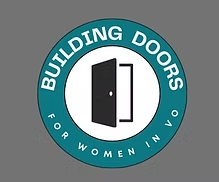The following is from the Such A Voice archive, written by Catherine Marshall:
 Preparing to make cold calls reminds me of being at a middle school dance. The girls are on one side and the boys are on the other, scared to cross the school gym to ask a girl to dance. Their fears of rejection and ridicule prevent them from asking a girl out of the blue to dance. Some of them don’t make a move, sure that they’ll find another way to catch their girl’s attention. The ones that do risk their egos are thought to be made of different stuff, – and they’re the only ones who get what they’re after.
Preparing to make cold calls reminds me of being at a middle school dance. The girls are on one side and the boys are on the other, scared to cross the school gym to ask a girl to dance. Their fears of rejection and ridicule prevent them from asking a girl out of the blue to dance. Some of them don’t make a move, sure that they’ll find another way to catch their girl’s attention. The ones that do risk their egos are thought to be made of different stuff, – and they’re the only ones who get what they’re after.
OK, so that was a dramatic analogy! But the truth is, everyone gets nervous when there’s a chance they’ll get rejected. No one is “made” for cold calling, but it is something all voice-over artists have to face. For some reason, calling for voice-over work exposes a host of insecurities that we may have. Which is why we don’t want to do it. There are so many question marks: What if the person is rude? What do I say if they shut me down? What if I get stuck on the phone with a babbler and can’t get off? What if I stumble over my words [as a voiceover artist] or sound like an idiot? You also know, as a professional voice-over artist, that your voice will choke up if you’re nervous, will be low energy if you’re tired, or will be short and pointed if you’re annoyed or frustrated. No wonder you don’t want to make cold calls!
Becoming comfortable with the cold call is essential to starting, growing, and maintaining your voiceover network. Like other fears you may have, the only way to get over the fear – or whatever euphemism you call it (e.g., annoyance, discomfort, anxiety, hassle), is to start making cold calls and build up your ‘cold calling confidence’.
Here are a few ways to prepare yourself for your cold calls to make them less, well, cold.
- Make sure you have researched the company: You can get online and find out just about anything these days. Research the company, know where and how they operate, how they do their marketing, and what their products or services are. Being familiar with their image, as well as identifying who their niche is, will certainly make it easier when talking to the person responsible for hiring voice-over talent. If you analyze what type of voice is most appropriate for the job, and whether or not that voice is you, will make things easier on you.
- Know who you’re calling: It sounds really basic, but don’t jumble your contacts! Make a clear tracking sheet in Excel to help you keep track of the company, the person you’d like to talk to, and their position at the company. You may need to call the receptionist to get connected to the right person. If so, ask for the person’s name that you need to speak with so that you have the name for your follow-up calls.
- Know what information you’d like to give and get: In fact, write it down! The minute you get on the phone your mind is certainly going to go blank. Have a note pad in front of you with an outline of points to cover. If you do get into a conversation about the voice-over work you can do, offer to email your demo.
- Follow up, follow up, follow up … and follow up again: Keep track of when you call in your spreadsheet, and don’t take it personally if it feels like they’re ignoring you. Returning your phone calls is probably not at the top of their to-do list. Be persistent without sounding entitled to their attention. The more they see and hear your name with good associations to it, the better.
Keep in mind that cold calling takes a while to pick up traction. Just because you called 20 people in your first week with little to no success does not you should give up. It does mean that you should be patient though.





